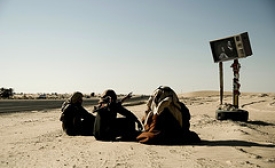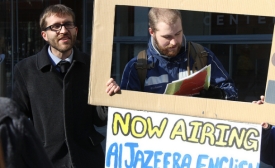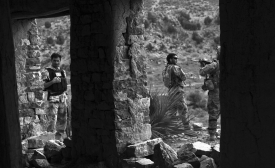media
John Worne’s International Relations Positioning Spectrum (IRPS), and Nick Cull’s response provide interesting perspectives on th

This project examined core issues at the intersection of media and public diplomacy in the Middle East from 2004 to 2005.

In collaboration with Queens University of Charlotte, this project involved audience and organizational analysis to evaluate the conciliatory potential of Al-Jazeera English (AJE).
It is about time that the Al-Jazeera Network received some good news from America. Having been accused by the former Secretary of Defense Donald Rumsfeld of inciting terrorism and assisting Iraqi insurgents, and then allegedly considered as a potential target of a U.S.-led military strike, Al-Jazeera has not exactly felt welcome here in the United States since the beginning of the war in Iraq.
I have to admit I did not expect to be writing what could be deemed a defense of Al-Hurra -- the U.S.-sponsored Arabic language television station beamed across the Arab world. Al-Hurra (which means "the free one" in Arabic) has come under scrutiny over the past few years for its potential impact on U.S. public diplomacy objectives.

The effectiveness of information campaigns today will more often dictate a victory than how well bullets and bombs are put on a target. Putting information on target is more important when dealing with an asymmetric adversary that cannot – and does not need to – match the military or economic power of the United States and her allies.







